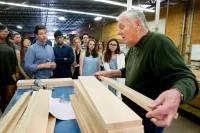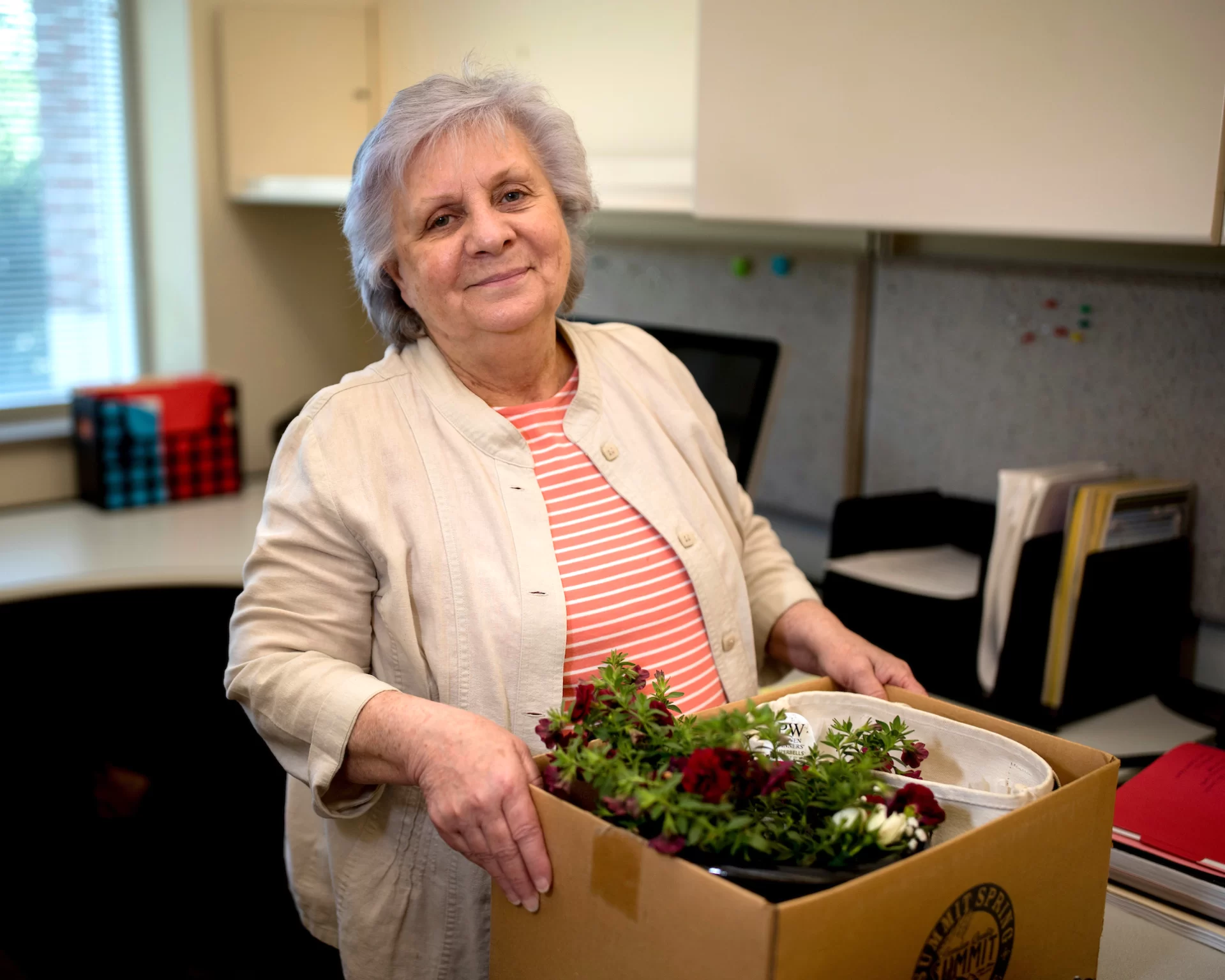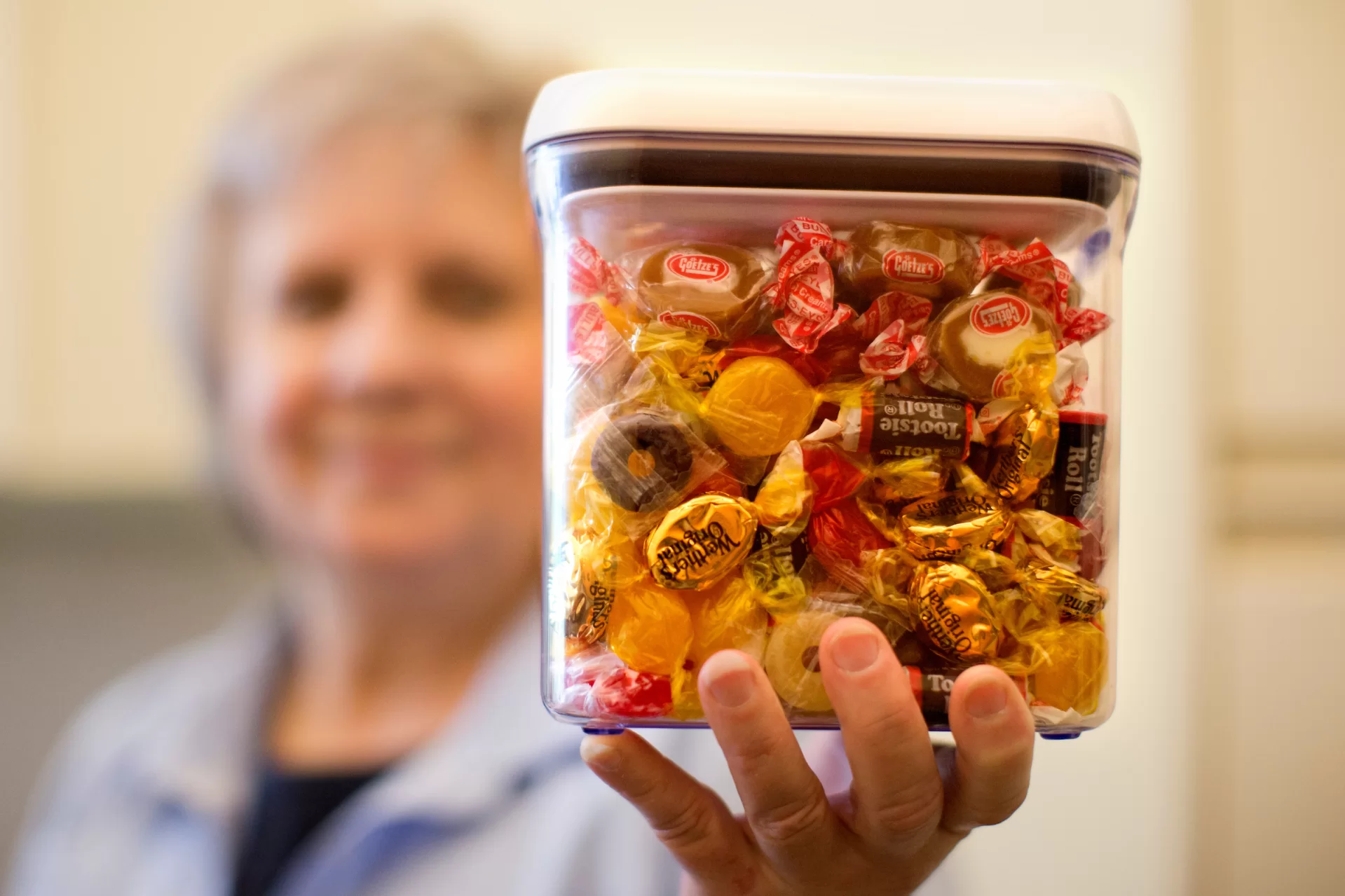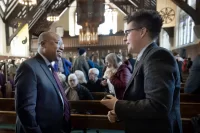
Remembering Sylvia Hawks, 1948–2025
Sylvia Hawks’ work resume has no gaps: Fifty-one years, all spent supporting Bates.
Hawks joined the college on March 4, 1967, working in what was then known as “the secretarial pool.”
She was 18 years old, and wherever you look, 1967 was a different world. The day she was hired, for example, the Lewiston Sun Journal reported that the Lyndon Johnson administration was avoiding the word “escalation” to describe the ominous, stepped-up military action in Vietnam.
To learn her typing skills, she took a 20-hour course that has been signed into law by President Kennedy just a few years earlier.
And at Bates, coed dining had just begun — as had something called “Short Term.”
Sylvia Hawks, 1948–2025
This tribute to Sylvia Hawks appeared in the fall 2018 issue of Bates Magazine at the time of her retirement from Bates the longest-serving employees in the college’s history. Hawks died on March 14, 2025, at age 76.
I visited with Hawks in June 2018, three days before her retirement as an academic administrative assistant in Pettengill Hall. After we talked, I asked permission to write a story, since she’s reticent about such things. She paused. “That’s fine.”
Her first Bates job, handling mimeographing, no longer exists. She recalls an early technological innovation: an IBM typewriter with a “mag card” that stored a page of text so corrections could be made without retyping an entire page!

I asked her to complete this sentence: “The more Bates changes….” “The more changes there are,” she said, laughing. Yet change never perturbed Hawks. “You have to keep up,” she says. “If you
don’t change, then everything becomes stagnant.”
And are students different today, too? “No. They’re still leaving Mom and Dad for a new world. So their friends become that much more important to them.”
Hawks grew up in Lewiston, and after graduating from Lewiston High School in 1966, she learned her office and typing skills through a federal program that had been signed into law by President Kennedy a few years earlier.
Back then, a young person graduate from Lewiston high, choose a local business — often a mill — and work there for decades. “And that’s what I did,” she says. “My mother said, ‘You don’t go jumping from job to job. That’s just not right.’ So I grew up with that mindset.”
In Hawks’ case, the choice was Bates College, not Bates Manufacturing. She made the choice intentionally after a summer job in a mill. “I was very young,” she said. “You had all these bosses, and they would, if you want to say it now, harass the younger ones. It was that kind of a mentality, and I hated it. I wanted out of that.”
Back in the day, one of her secretarial pool colleagues, briefly, was a just-graduated Elizabeth Strout ’77, now a Pulitzer Prize–winning novelist. “Liz was a character,” says Hawks, for whom “characters” are interesting people. “Not boisterous, but she always had something to say, just off, about different things.”
Strout has equally vivid and fond memories of Hawks, whom she’s visited when back on campus. Steadfast and honest is how Strout describes Hawks — good words that sound good together.
Since the dissolution of the Lane Hall secretarial pool years ago, Hawks has worked in Pettengill Hall, supporting the faculty in anthropology, history, politics, and digital and computational studies.

There, she was indeed steadfast in supporting her faculty. “You build a relationship with a professor, and that becomes a bond. There’s trust.”
So, what does “support” mean to Hawks? “It’s when you work with somebody, or there’s somebody you just care about or think about, then you’re going to be loyal to them. It’s just being there for them. “That’s what I’ve done at Bates. And it’s been so worth it.”




